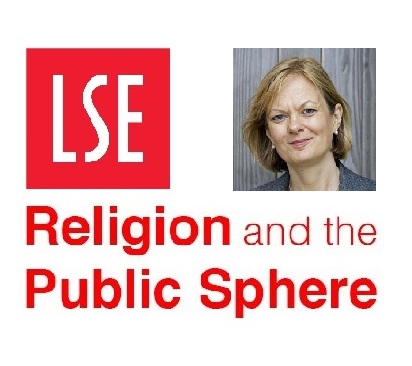 The Government has been accused of ignoring moderate and inclusive religious views in its approach to faith schools policy due to a shallow and media driven understanding of religion that considers hard-line religious views as more authentic. The analysis has been put forward in a new online article for the London School of Economics by national Sociology of Religion expert, Professor Linda Woodhead.
The Government has been accused of ignoring moderate and inclusive religious views in its approach to faith schools policy due to a shallow and media driven understanding of religion that considers hard-line religious views as more authentic. The analysis has been put forward in a new online article for the London School of Economics by national Sociology of Religion expert, Professor Linda Woodhead.
In the post Professor Woodhead argues some politicians accept a narrative driven by mainstream media that paints religion as hard-line and so subsequently make policy concessions to hard-line religious leaders out of a desire to respect and uphold religious freedom which ultimately serves to ‘… violate the conscience of religious majorities and undermine the religious centre ground.’ She notes that, despite the Catholic Education Service arguing that cannon law prevents the Catholic Church from opening schools that are limited in the extent to which they can religiously prioritise pupils, ‘there is in fact no such canon’ that demands this. Professor Woodhead criticises the Government for accepting at face value this argument by the Catholic Education Service and recommends that ‘More critical discernment is urgently needed’ by policy makers.
Last month, the Prime Minister announced the Government’s intention to scrap the current cap that limits faith free schools from not selecting more than half of their pupils on religious grounds. One of the reasons for the change cited by Theresa May was that the 50% cap acted as a barrier to new Catholic schools being established ‘… because the Catholic Church believes it contravenes its own rules’.
Chair of the Accord Coalition for Inclusive Education, Rabbi Dr Jonathan Romain, said ‘Allowing state funded schools to religiously discriminate and segregate inhibits religious freedom, serves to undermine religious cohesion in society, and ignores what a great many religious people think and want. Professor Woodhead exposes an irony that while government wishes to support improved understanding of religion, it sometimes suffers from a lack of such understanding in the decisions it takes.’
A 2012 opinion poll commissioned by Accord revealed that a large majority of the public were opposed to any religious discrimination in pupil admissions to state funded schools. In July 68 Rabbis wrote to the Government urging that the 50% cap be retained.


